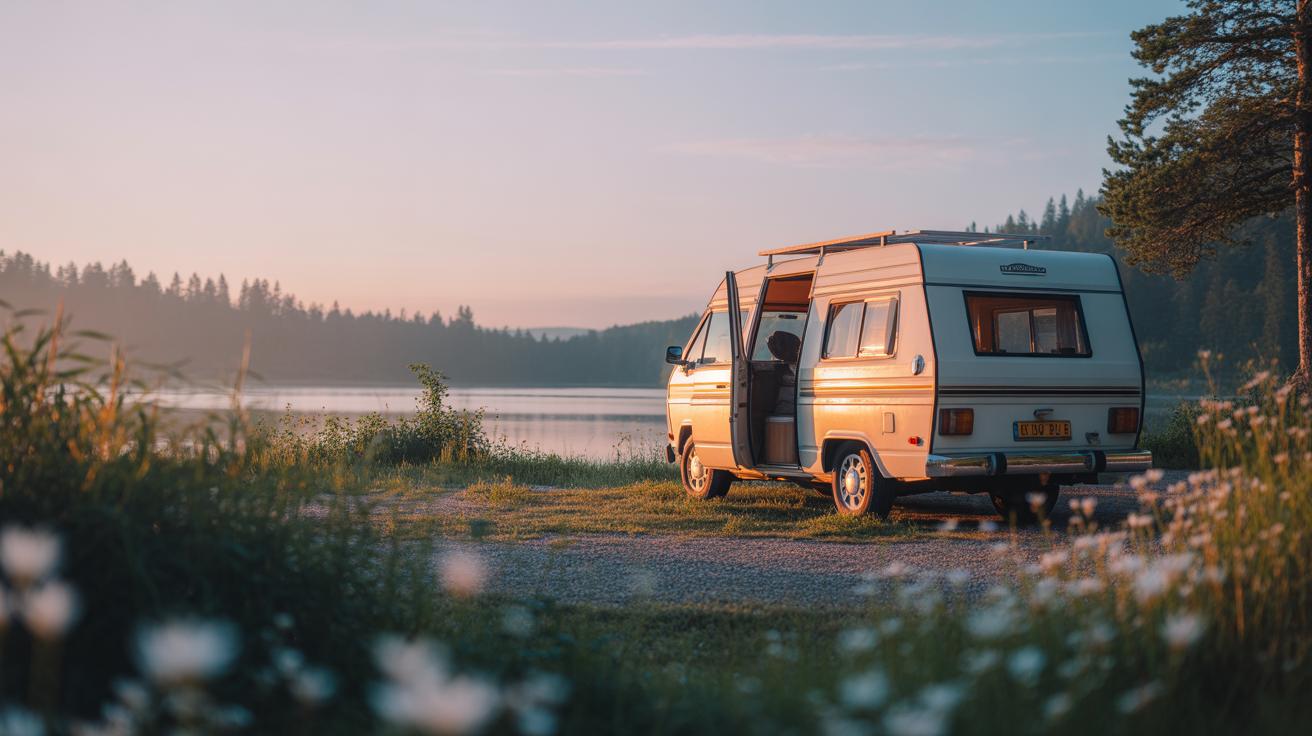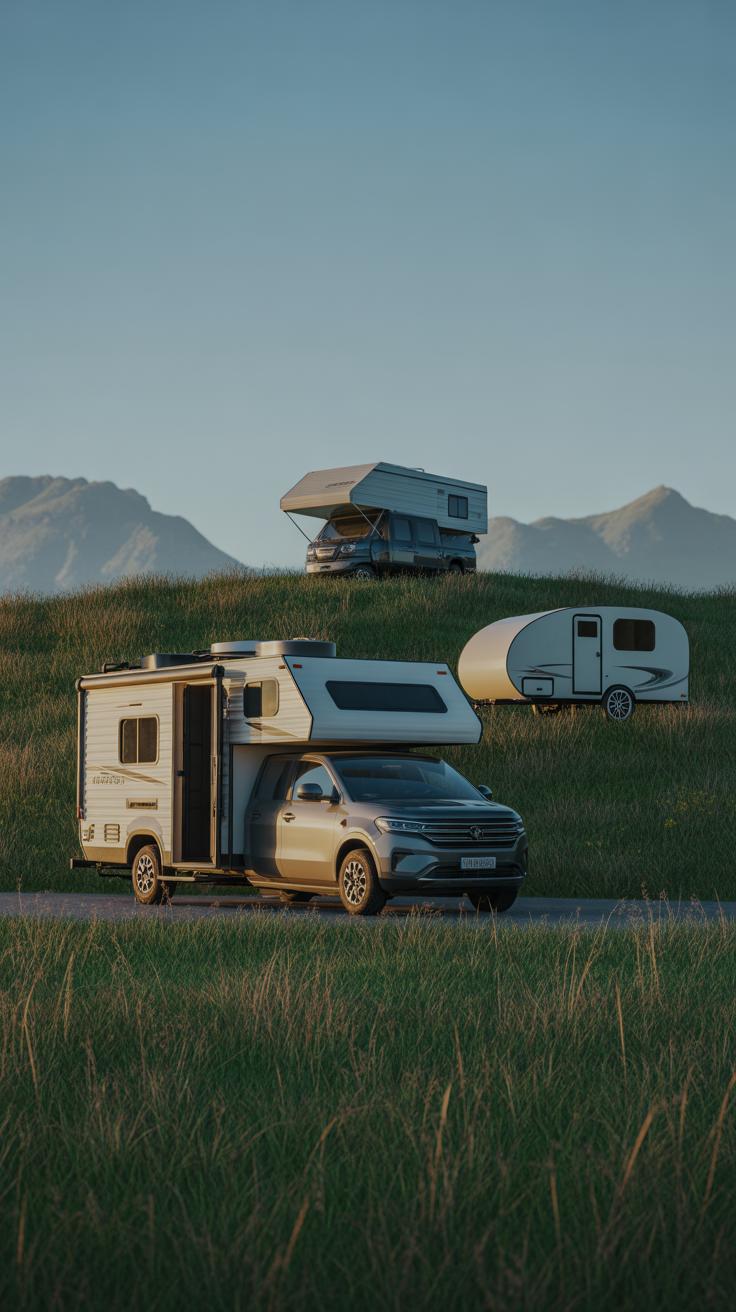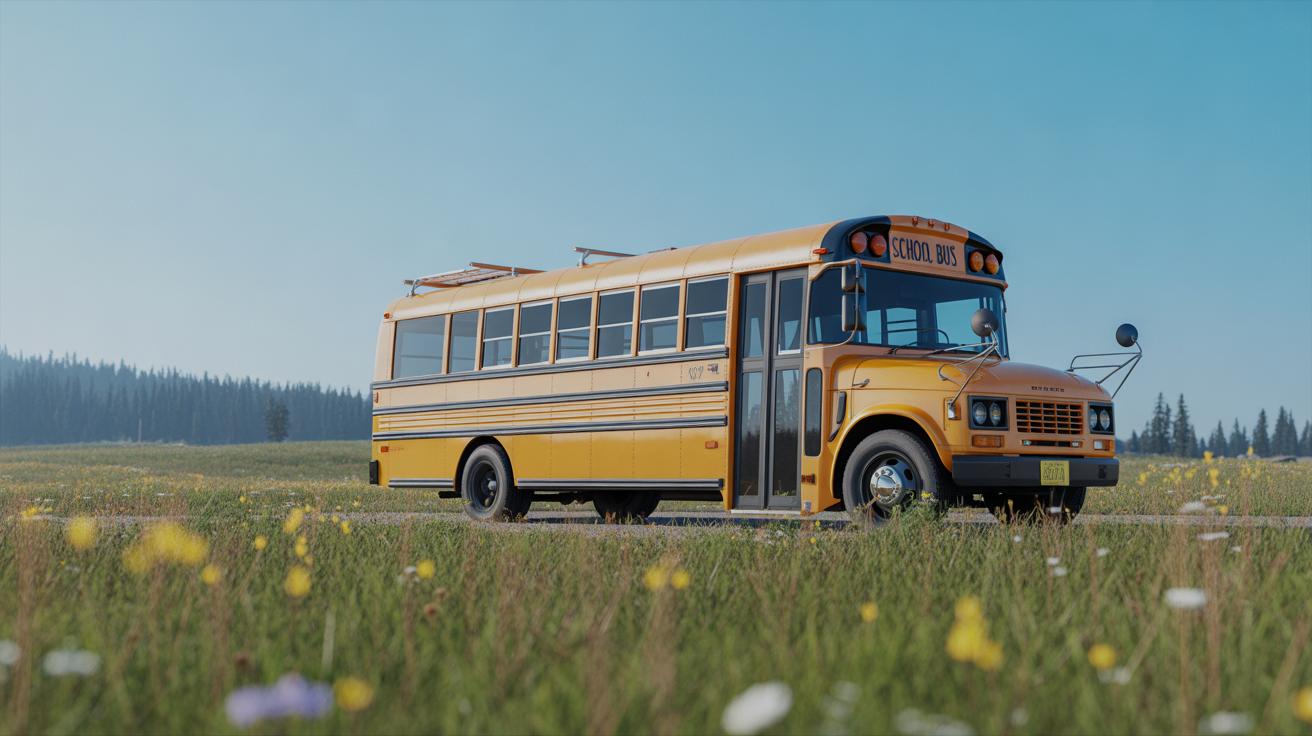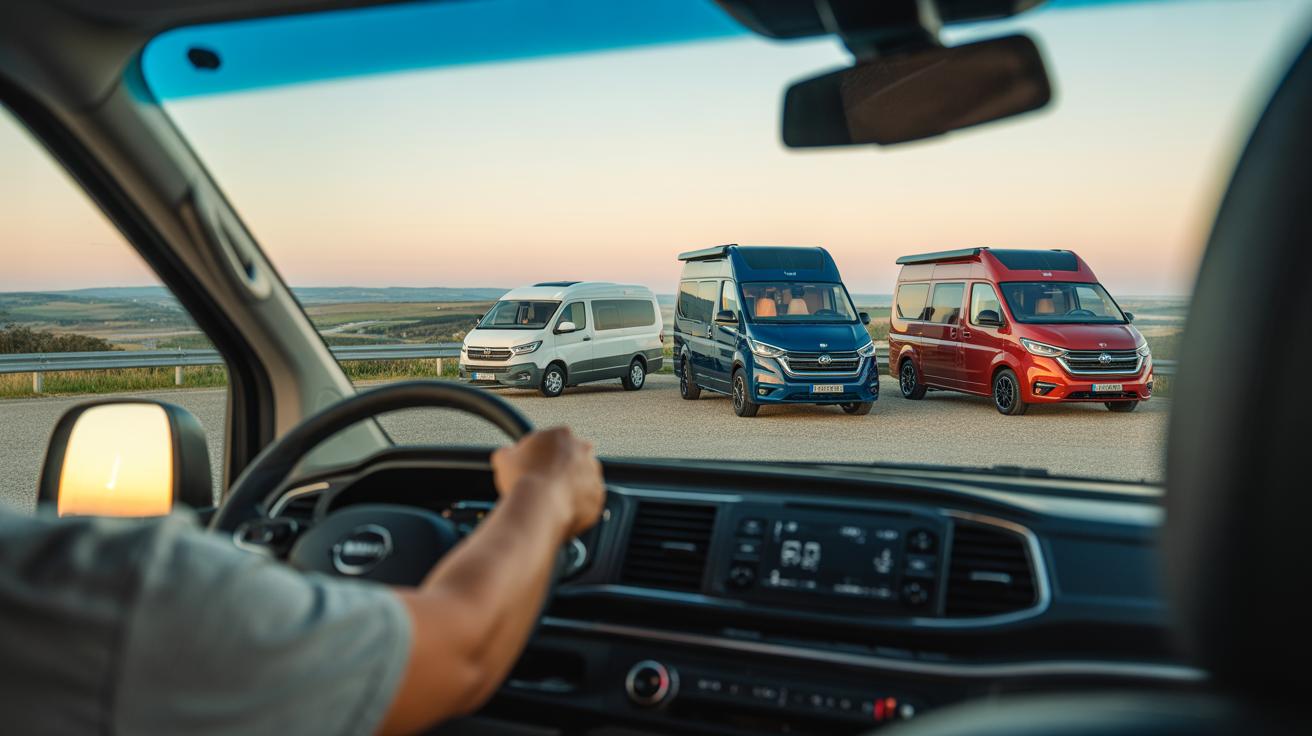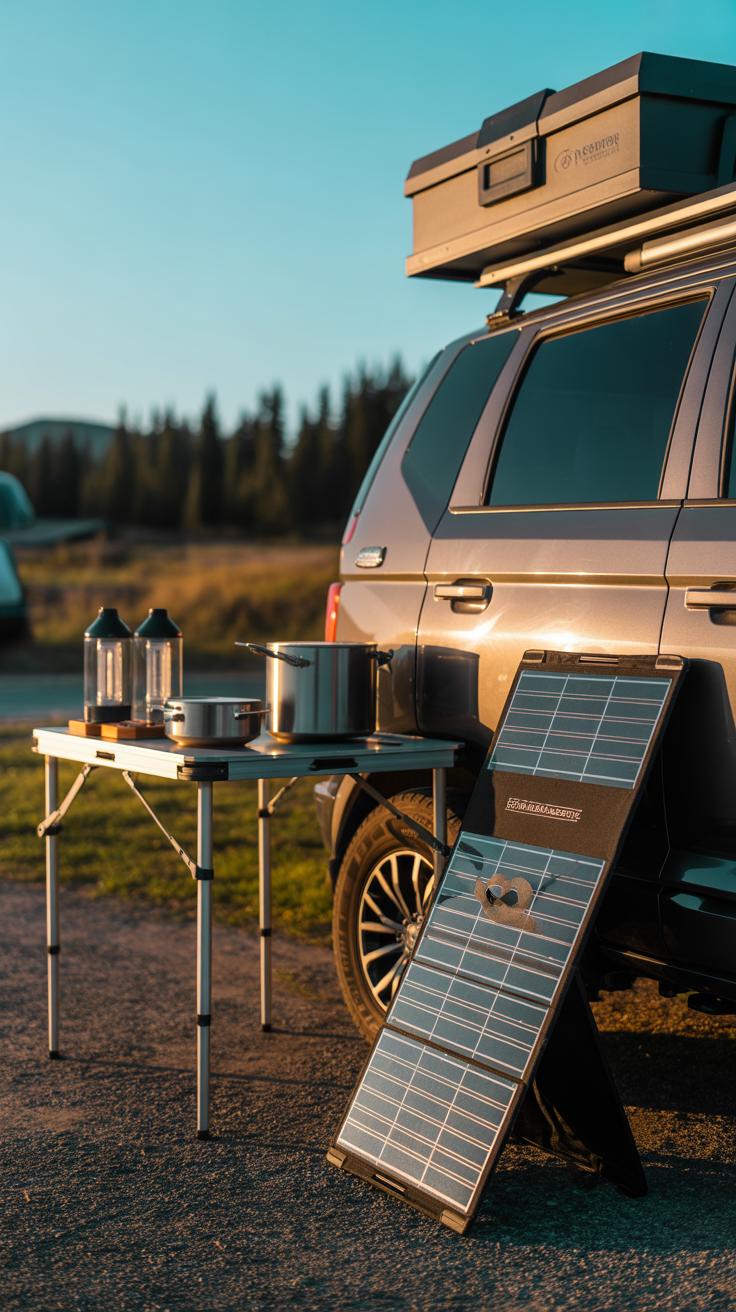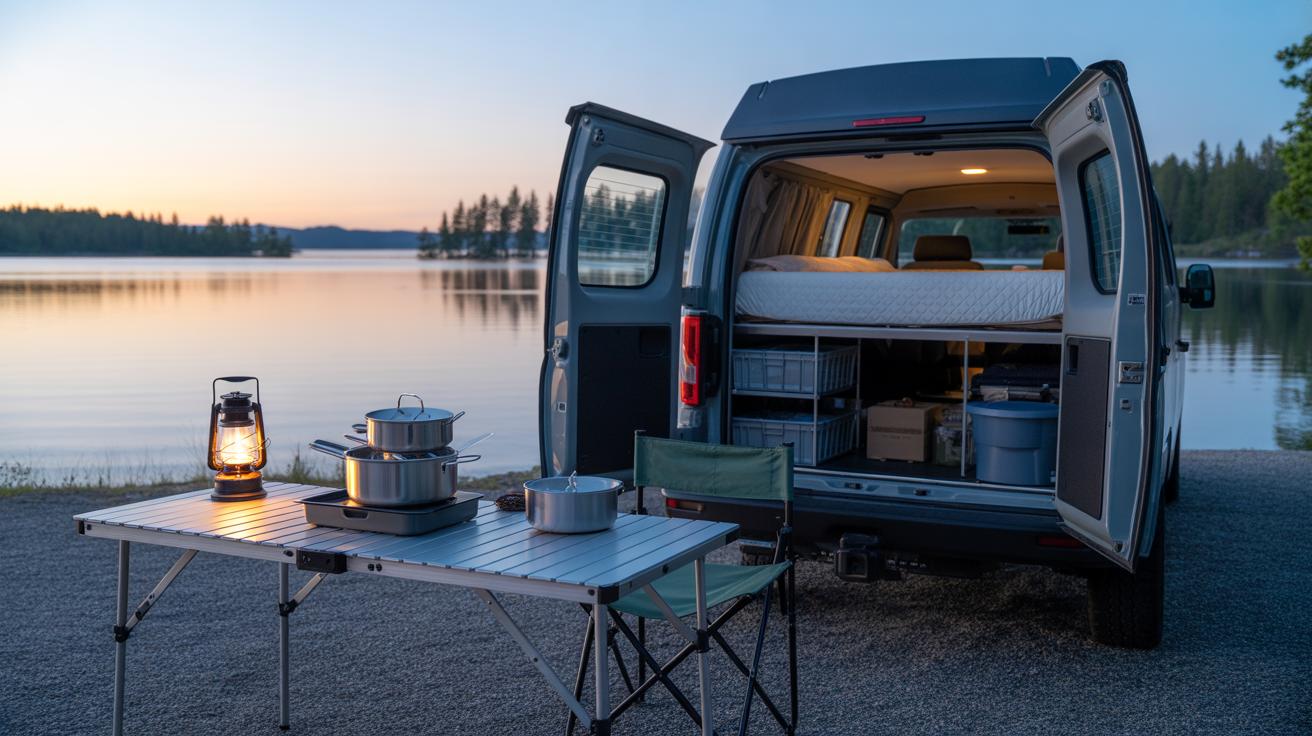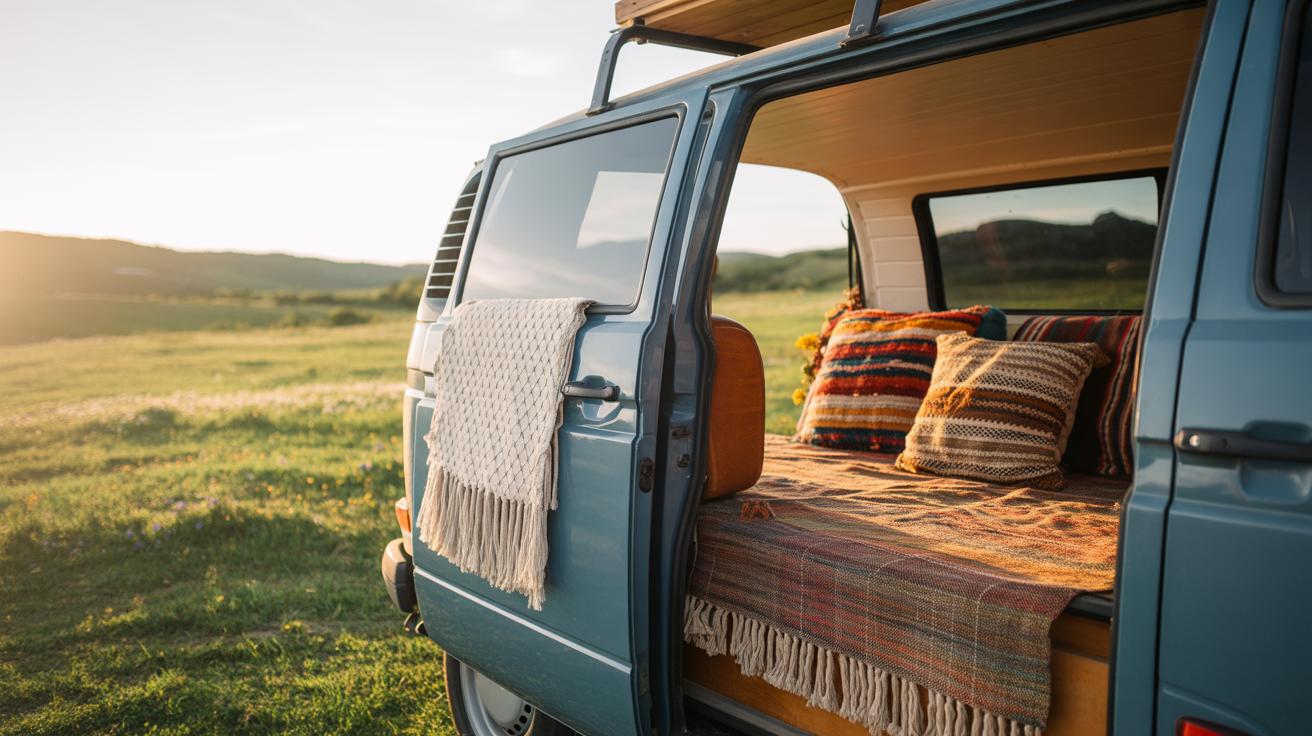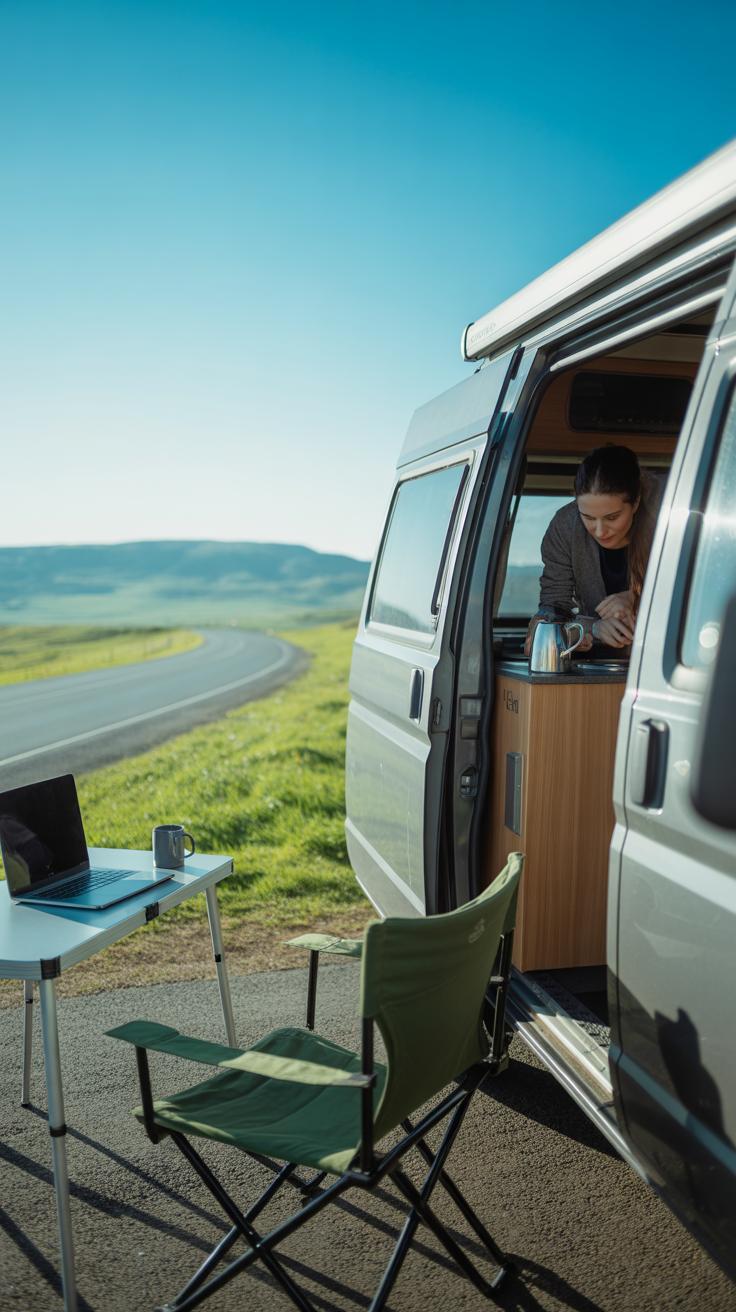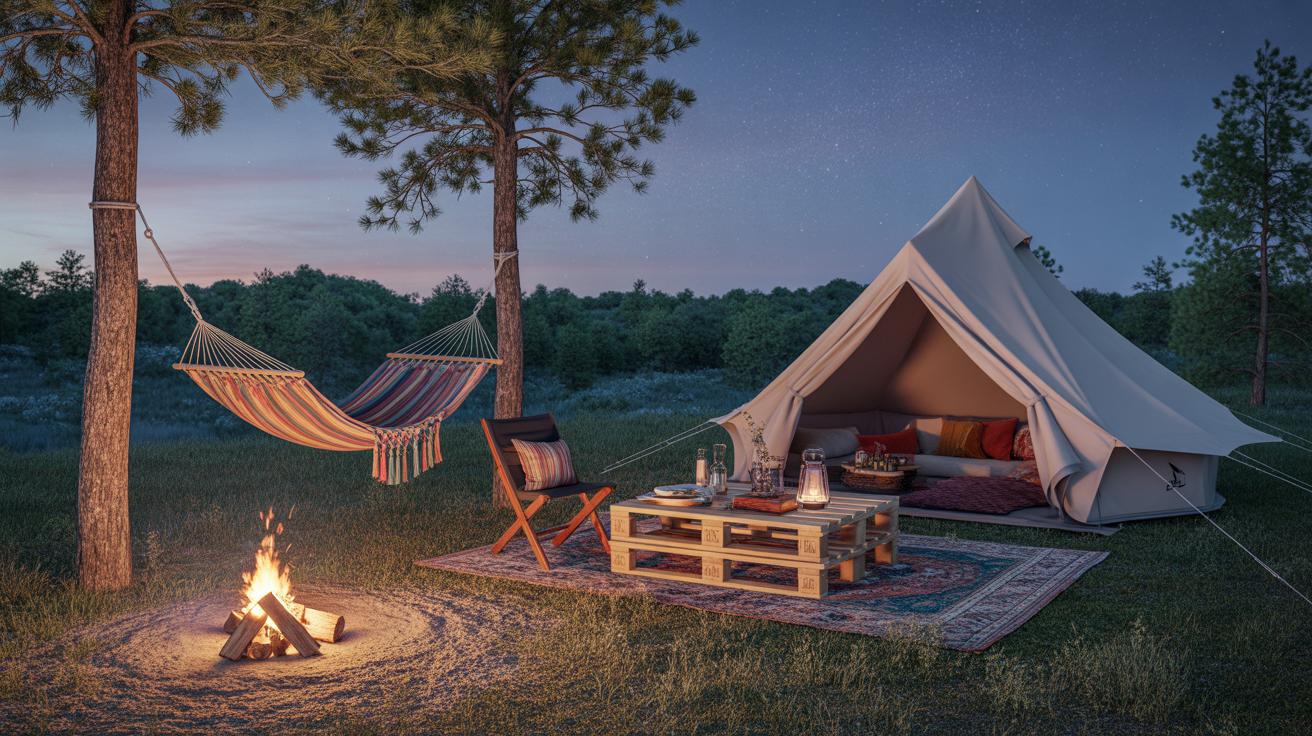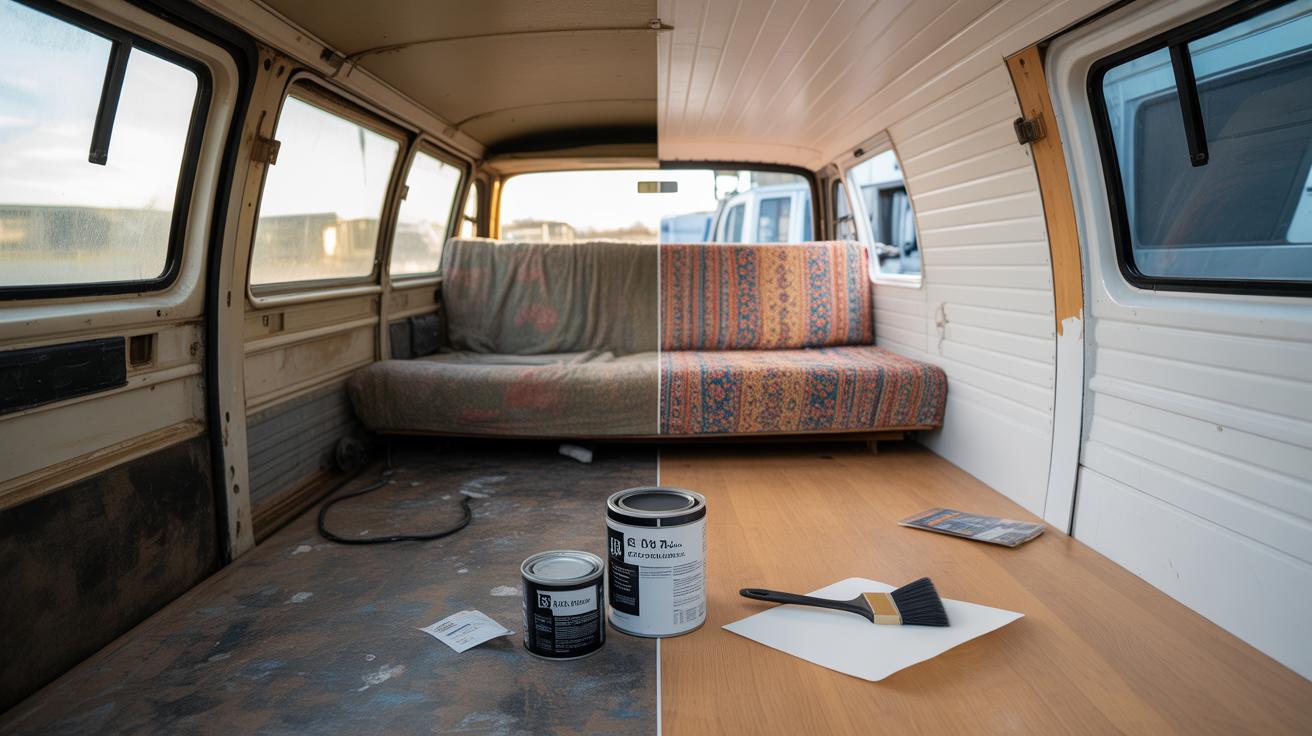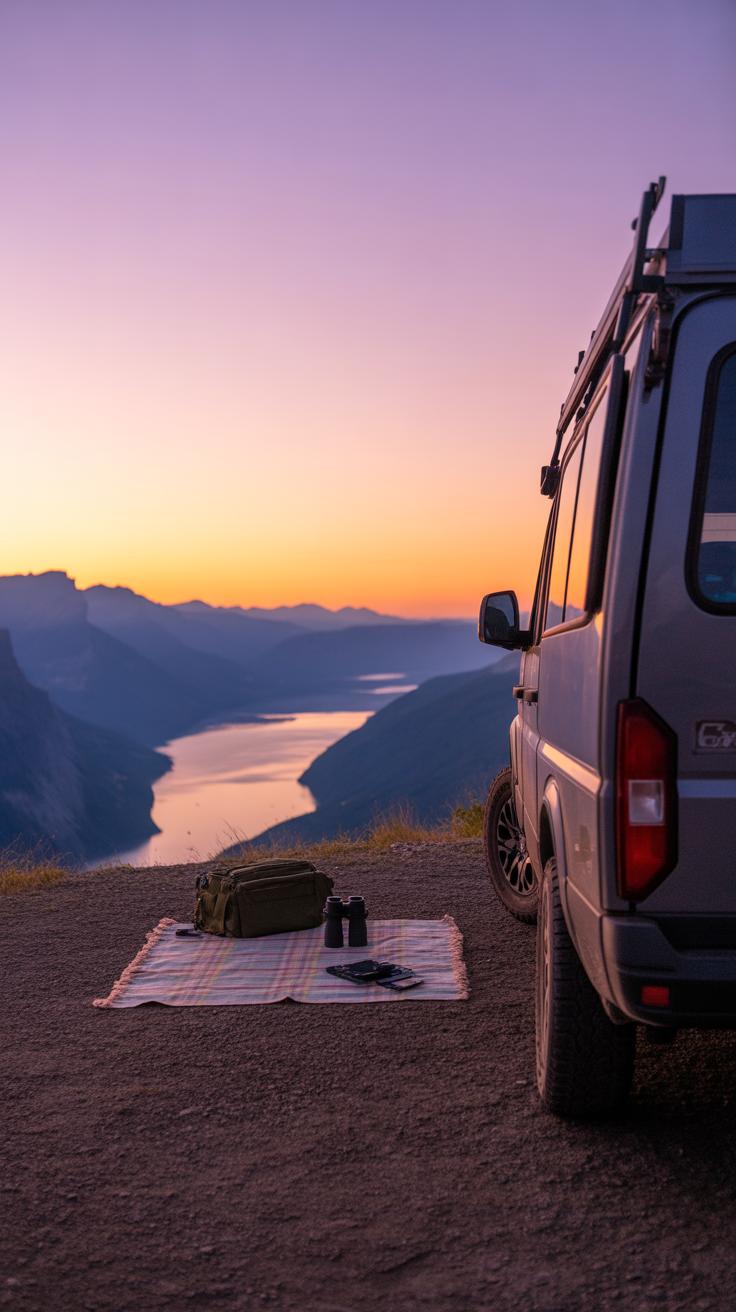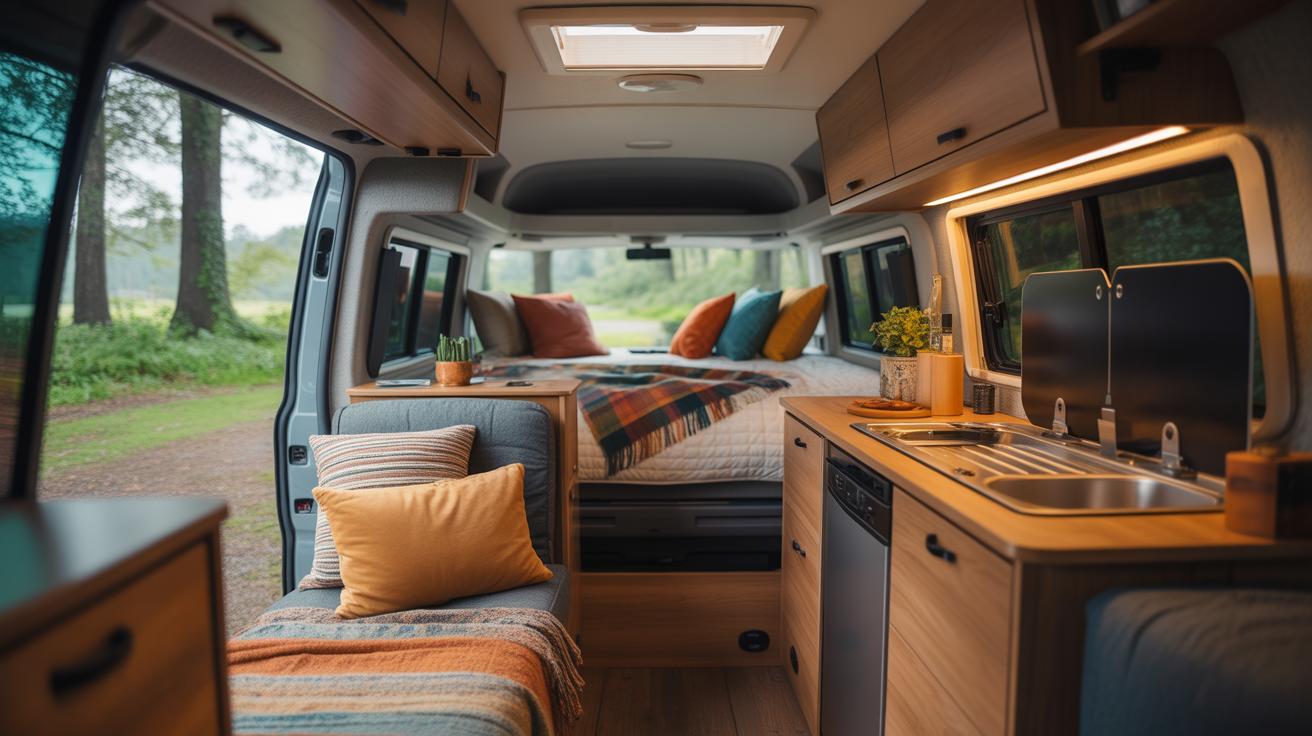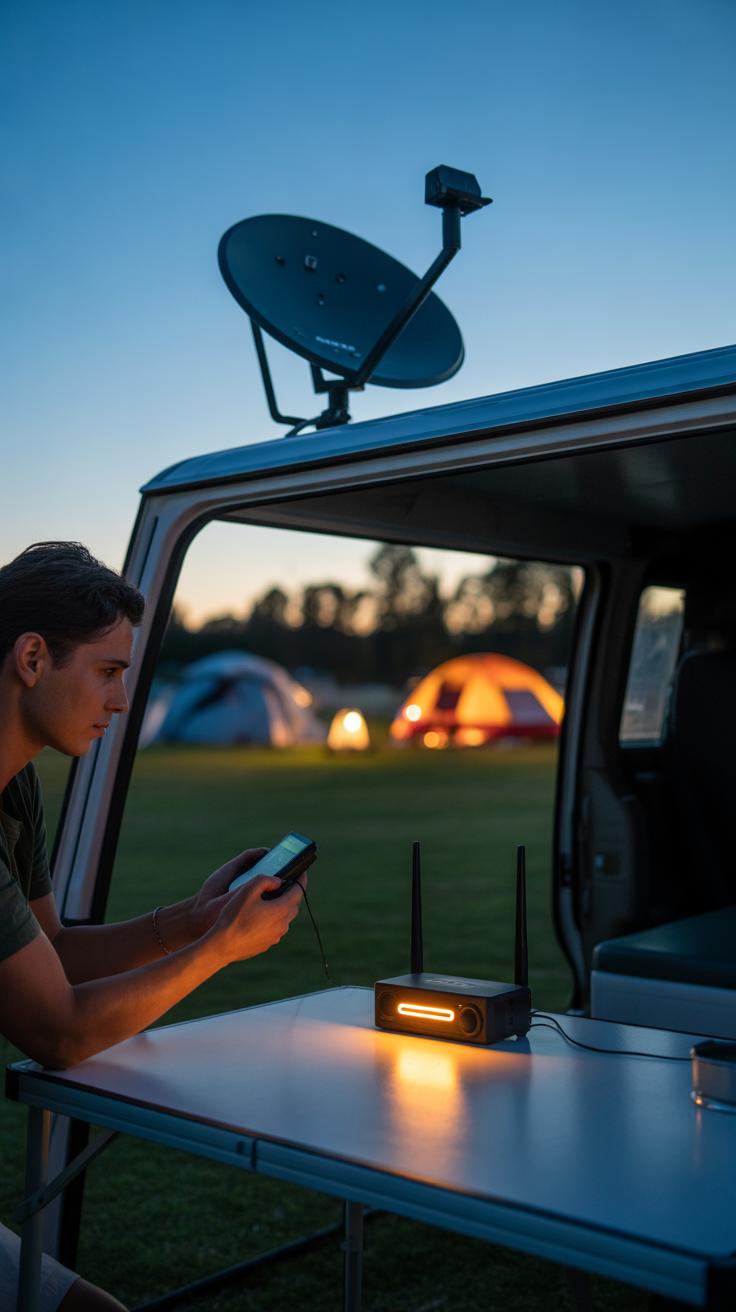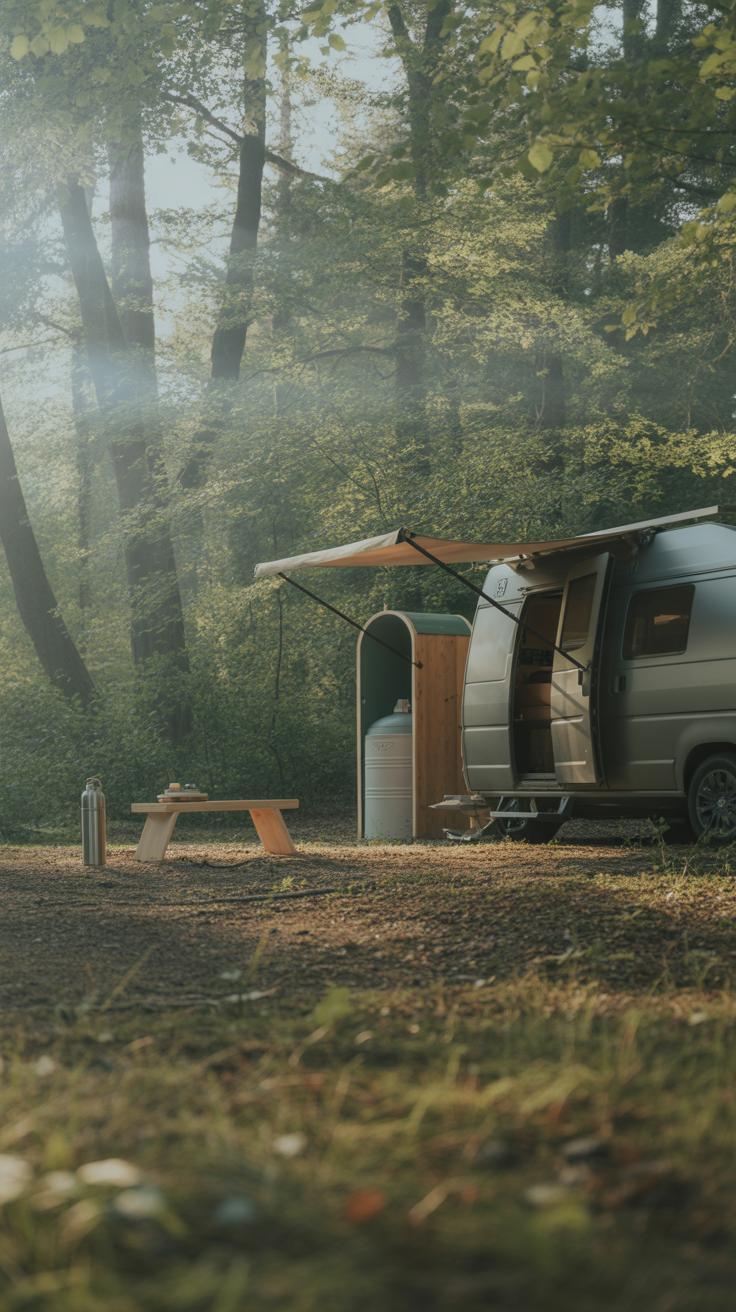Introduction
Embracing camper life opens a pathway to simple, unplugged outdoor freedom. It means leaving your house behind and carrying your home with you wherever you go. This way of living lets you explore new places, connect with nature, and choose your own adventure daily.
This article explores what it means to live the camper life. You will learn about the types of campers, what you need to start, and how to make your journey safe and fun. Get ready to step into camper life and find your way to enjoy the open road.
Choosing the Right Camper for Your Lifestyle
Types of Campers and What They Offer
When it comes to campers, the choices can feel a bit overwhelming at first. You’ve got truck campers, RVs, and camper vans—each with their own perks and quirks. A truck camper slides right onto the bed of a pickup truck, making it versatile and easy to detach when you want to use the truck separately. It’s compact but surprisingly cozy for those who don’t need much space.
RVs, or recreational vehicles, can be anything from small motorhomes to large Class A buses. They offer more room and amenities—think full kitchens, bathrooms, and sometimes even slide-out sections for extra living space. On the downside, they can be bulky and less nimble on narrow or winding roads.
Camper vans strike a middle ground. They’re easier to drive than big RVs and more self-contained than truck campers, often outfitted with beds, small kitchens, and storage cleverly built-in. If you’re into sneaking into tighter spots or stealth camping, a van can be an unexpected home on wheels.
Matching Camper Choice to Your Needs
Choosing a camper isn’t just about what looks good. You have to ask yourself: how many are traveling? Will you stay mostly in campgrounds or find off-grid spots? What’s your budget? And what kind of comfort level do you want?
For example, a solo traveler who enjoys short weekend trips might find a truck camper simple, affordable, and easy to park anywhere. Meanwhile, a family of four planning long-term travels would probably need the space and facilities of an RV. Someone prioritizing mobility and city parking could lean toward a compact camper van.
Think about your travel habits. Do you often move from place to place or stay put? Do you want full kitchen facilities or just a place to sleep and cook outside? Even things like whether you want a bathroom onboard or are okay waiting for campground showers can tip the scale.
One of my friends swore by his camper van for years—compact, practical—but later switched to a small Class C RV as his travel style shifted toward longer stays and needing more comforts. It wasn’t about having the biggest camper but the right one for what he did.
Questions to consider:
- How much space do you really use?
- Will you be driving in tight spots or on highways mostly?
- What’s your budget for both buying and maintaining the camper?
- How important is off-grid capability?
There’s no perfect camper for everyone. But knowing what fits your lifestyle will save you time, money, and headaches on the road.
Essential Gear and Setups for Camper Life
Packing Smart for Comfort and Convenience
When you think about packing for life on the road, the key is to balance between having what you truly need and avoiding clutter. Cooking gear like a compact stove, a small set of pots and pans, and reusable utensils are crucial. I’ve found that multi-purpose tools, such as a spork or a knife with multiple functions, save a surprising amount of space.
For sleeping, a good-quality sleeping bag or a lightweight, space-saving mattress is essential. You want something comfortable, but it must fit your limited storage. Including pillows that double as cushions could also be worthwhile.
Safety equipment might not be glamorous but don’t skip it. A first aid kit, fire extinguisher, and reliable flashlights should always be within easy reach. At first, I underestimated having a good fire extinguisher, but it quickly became clear how much peace of mind it brings.
Organizing Your Camper Space Efficiently
Space in a camper is limited—that’s obvious—but figuring out how to use it well is a game-changer. Bins and small containers help keep things grouped by purpose: cooking supplies, tools, and personal items all separated.
Hooks and magnetic strips can turn walls or the fridge into storage zones. Also, stacking items vertically rather than side-by-side often frees much-needed room. You might think sliding drawers are just for bigger RVs, but clever use of under-seat storage works just as well.
One trick I picked up is to maintain a sort of “launchpad” near the door for essentials you grab daily—keys, headlamps, or water bottles. It cuts down on the usual morning scramble and keeps your small space nicer to move around in.
Do you lean toward keeping things hidden away or prefer having everything visible? Each style changes how you’d set up those small zones. It’s worth experimenting a bit before settling in.
Daily Life on the Road
Living in a camper changes your daily rhythm. Your mornings might start with brewing coffee over a small stove, then tidying up the tiny space before hitting the road or stepping outside. Cooking often means planning simple meals—think one-pot dishes or fresh salads—since counter space and storage can be limited. But there’s a strange satisfaction in making a decent dinner without a full kitchen.
Cleaning feels different too. Instead of a big scrub, you wipe down surfaces regularly to keep dust and crumbs at bay. Water use needs a bit more thought. You might limit showers or use a solar shower bag, measuring out water carefully. Power—mostly from batteries or solar panels—means managing appliances and lights carefully, knowing when to conserve or recharge.
To feel good, I try to stick to routines: stretching or walking daily, keeping up good hygiene as best as possible, and finding quiet moments for rest. Some days are easier than others. Staying comfortable and healthy takes a little effort, but it’s part of the reward of this mobile, smaller-scale life.
Managing Basic Needs on the Go
Cooking in a camper demands creativity but doesn’t have to be complicated. A portable stove, a few pots and pans, and some basic utensils cover most meals. Using pre-chopped veggies or quick-cooking grains helps save time and water. Keeping waste under control means having a system—composting where possible, sealing trash bags tightly.
Water use stays top of mind. Filling tanks at RV parks or trusted sources, tracking consumption, and using greywater for plants or cleaning outside are practical habits. Regularly checking seals and fittings prevents leaks. For keeping things fresh, ventilation is key—open windows or vents to avoid dampness or odors.
- Plan simple meals that don’t require a lot of water or power.
- Use biodegradable soaps and manage waste responsibly.
- Keep cleaning supplies handy for quick wipe-downs.
- Track water levels daily to avoid surprises.
- Ventilate often to maintain air quality.
Staying Comfortable and Healthy
Maintaining your health on the road is a juggling act. Exercise might be a walk around the campsite or yoga stretches inside. It’s easy to skip movement, but keeping active helps both body and mood. Hygiene can be tricky, so I lean on wet wipes, quick rinses, and drying thoroughly to prevent discomfort.
Rest matters more than you’d think. Camper beds aren’t like home, so good bedding and blackout curtains make a big difference. Listening to your body’s signals—knowing when to slow down or get fresh air—helps too.
Sometimes, I find that a break from noise and routine refreshes me faster than expected. But other times, the confined space gets to me. Balancing solitude with social interaction or outside time can make camper life feel more manageable.
Finding and Enjoying Camp Spots
How to Choose Safe and Legal Camping Sites
Choosing where to park your camper can feel a bit overwhelming at times. You want safety and legality, but also a place that feels right. Apps like Campendium or iOverlander can be great starting points—they offer real user reviews and info on restrictions. Still, don’t rely on them blindly. Always double-check local rules or land management websites, because regulations change and what’s allowed one season might not be the next.
Look for spots with decent cell reception if you want to stay connected or emergency help nearby if needed. Public lands are tempting but often come with specific permits or limits on stay duration. Private campgrounds have their perks but can be pricey or crowded. It’s a balancing act, really.
Making the Most of Your Camp Spot
Once you’ve settled in, how do you make the place yours for a bit? Start small. Go for walks around the area—sometimes the best discoveries are just a short stroll away. Birdwatching, sketching, or even a quick read outside can turn your site into a personal retreat.
Think about simple activities that connect you with nature: maybe try fishing if there’s water nearby or just sit and listen to the sounds around you. These moments often surprise you, especially after a day on the road. At the same time, respect the environment you’re in. Pick up after yourself, minimize your impact, and avoid disturbing wildlife. Being a good guest means the spot stays enjoyable for those who come after you.
Maintaining Your Camper
Keeping your camper in good shape means steady attention—nothing too complicated, but consistent. Start with routine checks: every week, take a quick look at your tires for pressure and cracks. Low or uneven tire pressure can sneak up on you and cause bigger issues down the road. While you’re at it, give the interior a tidy-up. Dirt can hide in nooks, and it’s easy to overlook small messes that might attract pests or cause wear.
Appliances inside, like your stove or fridge, deserve regular inspection too. Sometimes a burner won’t light properly or the fridge cools less efficiently. Catching these quirks early could save you from a frustrating breakdown during your trip. With just a little elbow grease, you avoid major headaches.
When minor repairs happen—and they will—some are straightforward while others might need a pro. For example, fixing loose cabinet hinges or swapping out a blown fuse isn’t too tricky if you have basic tools. But if your water pump stops working or electrical wiring acts up, better to call an expert. You want your camper safe, after all, not patched up in a way that might fail when you least expect it.
Ever dealt with a slow leak in your water line or a stubborn door seal that won’t stay closed? These common nuisances test your patience and sometimes feel too small to bother calling for help but too persistent to ignore. Balancing when to dive into repairs yourself versus getting professional support keeps your camper reliable without endless stress.
Staying Connected and Safe While Camping
Communication Tools for the Road
Staying in touch on the road isn’t always straightforward. Cell phones are a must, but don’t rely on them alone—signal can disappear suddenly, especially in remote areas. A satellite phone can be a lifeline if you’re venturing far off-grid, though they’re pricey and best kept as a backup. Two-way radios are useful for short distances and group travel, but they have limits too. When you’re camping, try to keep devices charged and carry portable power banks. I’ve learned the hard way that having at least two ways to communicate can make a huge difference. And remember: use your devices thoughtfully—limit unnecessary calls or messages to save battery life for emergencies.
Tips for Camper Safety
Safety on the road means staying alert and prepared, even when things feel relaxed. Check weather forecasts every day, but keep in mind they’re not always perfect, so stay ready for sudden changes. When camping remotely, let someone know your plans and expected return, even if you think you’ll be just around the corner. Animals can be curious or defensive, so store food securely and keep your distance if wildlife shows up. I once had a raccoon try opening my camper door—fun in hindsight, but it could have been worse. Trust your instincts about a place or situation. And don’t forget basic personal safety: carry a first aid kit, know where the nearest help might be, and don’t ignore small hunches that something’s off.
Living Simply and Respecting Nature
Living on the road invites you to strip away a lot of what feels unnecessary. It’s not just about fewer possessions; it’s about a mindset shift, where you let things go—both material and mental clutter. Keeping life simple means you can actually engage with your surroundings more fully. Sometimes I catch myself wondering if we overcomplicate things just because we can.
Practicing minimalism on the road isn’t always straightforward. You have limited space, so every item has to earn its place. For example, I pack multipurpose clothing instead of separate outfits for every occasion. My kitchen gear? Just a few essential pots and utensils that fit neatly together. It saves space and reminds me to consume less overall.
When camping, protecting nature goes beyond just leaving no trace. It’s about being mindful every step of the way. This means packing out all trash, avoiding harsh soaps in natural water sources, and keeping a respectful distance from wildlife. It’s easy to forget that animals don’t need us closer than curiosity allows—they have their own rhythms, and we should not disrupt them. I’ve learned that small behaviors, like lowering voices or staying on marked trails, help keep these spaces wild and safe.
What if we all did a little less, took a little more care? Would nature thank us by sticking around longer? That thought keeps me trying, at least.
Planning for LongTerm and Seasonal Camper Life
Living on the road for an extended time asks for more than just packing your bags and hitting the road. You need a plan—especially about money, health, and social ties. Think about budgeting beyond just fuel and groceries. Repairs pop up unexpectedly. Maybe your heater breaks in the middle of a cold snap or tires wear down faster than you guessed. Setting aside a cushion—say 10 to 15% of your monthly camper budget—for these surprise costs can save a lot of stress later.
Health on the road isn’t just about avoiding colds. You’ll want routines that fit your changing environment. Simple habits like packing fresh veggies, stretching sessions, and keeping hydration in check make a big difference. If you don’t have ready access to a gym, try bodyweight exercises or quick jogs around campsites. A little effort helps fend off sluggish days and keeps energy up.
Social life can wiggle in and out of reach. Staying connected takes more than just texting friends. Maybe schedule regular video calls with family. Also, consider joining local groups whenever you stop, from hiking clubs to farmers markets. These moments help you feel grounded and break the isolation that long-term travels sometimes bring.
Conclusions
Living the camper life brings you close to nature and offers a way to break free from everyday routines. It is not just about travel but making a new home on wheels that fits your needs. You can create a life full of excitement, peace, and comfort all at once.
By understanding your camper, respecting the environment, and planning well, you can enjoy this lifestyle fully. Whether you travel near or far, camper life gives you the freedom to explore and live simply. Your journey is what you make it, so start today and enjoy every mile.

